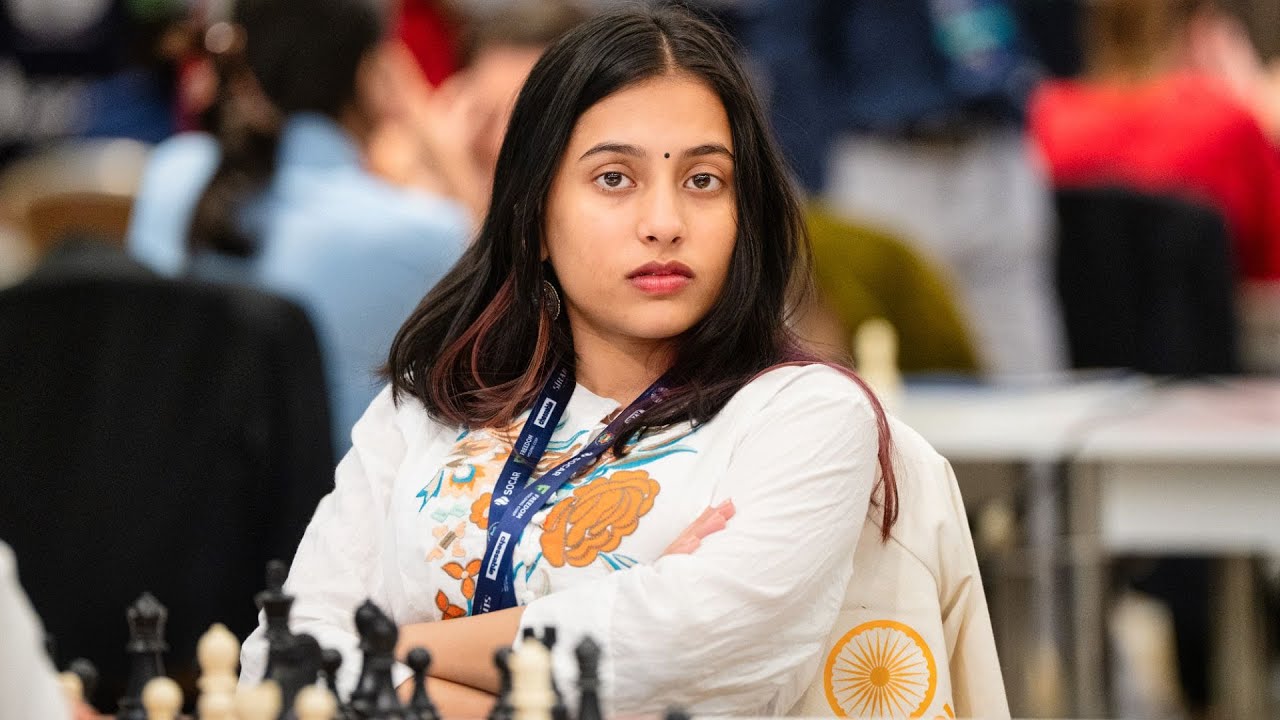In a tournament often dominated by seasoned veterans, a new star has unequivocally risen on the global chess stage. At just 19 years old, India`s **Divya Deshmukh**, an International Master poised for Grandmaster status, has carved her name into history by reaching the FIDE Women`s Chess World Cup final in her inaugural appearance. This remarkable achievement is not merely a personal triumph but a resonant statement on the burgeoning strength of young Indian chess talent.
A Journey Against the Odds
Entering the prestigious FIDE Women`s Chess World Cup, Divya Deshmukh was recognized for her significant potential but was hardly tipped as a definitive frontrunner. The path to the final in such a high-stakes competition is a demanding gauntlet, requiring not only immense theoretical knowledge but also an iron will and the capacity to perform under relentless pressure. Yet, Divya navigated this treacherous landscape with the poise of a seasoned professional, systematically overcoming opponents ranked significantly higher than herself.
Her “giant-killing spree,” as some have fittingly termed it, saw her dispatch formidable players, including the second seed Zhu Jiner and her higher-ranked compatriot Harika Dronavalli. Each victory built her momentum, transforming her from an underdog into an undeniable force. This progression culminated in a semifinal showdown that meticulously tested every facet of her strategic brilliance and mental fortitude.
The Semifinal Saga: A Test of Grit
The semifinal encounter against China`s Tan Zhongyi, a former World Champion and the third seed in the tournament, was nothing short of an epic struggle. After a swift draw in the first game, where Divya adeptly handled the black pieces, the second game unfolded into a protracted psychological and technical battle. Early on, Zhongyi appeared to gain an advantage, and Divya even found herself in time trouble—a scenario that often crumbles the resolve of even experienced players. At one point, around move 30, analytical engine evaluations reportedly favored Zhongyi, suggesting a difficult path ahead for the young Indian.
However, true resilience reveals itself when circumstances are dire. A series of inaccuracies by Zhongyi between moves 32 and 35 subtly shifted the dynamics, granting Divya a crucial lifeline. The game continued its seesaw nature, with both players trading minor errors, a testament to the immense pressure of the moment. A critical juncture arrived when Divya, having gained a “sizeable advantage” according to the analytical engines, made an inaccuracy on move 79, bringing the game back to an almost level playing field. One might forgive a nineteen-year-old for showing signs of exhaustion or resignation at such a moment against a former world champion. Yet, as the narrative surrounding this new wave of Indian chess players suggests, capitulation simply isn`t in their playbook.
Divya`s relentless prodding, even while facing a significant time disadvantage, eventually paid dividends. On move 90, Zhongyi committed a decisive blunder, a stroke of fortune that, while perhaps unearned by “perfect play,” was certainly a reward for Divya`s unyielding perseverance throughout the entire tournament. One could almost hear the chess engines sigh in resignation, acknowledging that sometimes, sheer tenacity trumps optimal calculation.
More Than Just a Win: A Statement
Despite her momentous victory, Divya`s humble post-match assessment that she “could`ve played much better” and “should have had a much smoother path to victory” speaks volumes about her innate drive for perfection. Such rigorous self-criticism, even after a historic achievement, is a hallmark of truly elite athletes—a relentless pursuit of mastery that consistently pushes boundaries. Regardless of the precise tactical nuances of how the win transpired, the record books will simply state that Divya Deshmukh, the 15th seed, became the youngest finalist in the Women`s Chess World Cup history, surpassing Nurgyul Salimova`s record from the previous edition. She also joins Salimova as one of only two International Masters to reach this prestigious final, unequivocally highlighting her precocious talent.
This achievement carries significant weight beyond the World Cup itself. By reaching the final, Divya has automatically qualified for next year`s coveted Candidates Tournament. This means she will now have the distinct opportunity to compete for the ultimate prize: a chance to challenge for the Women`s World Championship title. It is a rapid ascent, cementing her position among the global elite.
The Indian Chess Renaissance
Divya Deshmukh`s success is not an isolated incident but rather a shining example of a broader phenomenon: the remarkable resurgence and sustained growth of Indian chess. In recent years, India has consistently produced a formidable stream of exceptionally talented young players, both male and female, who are making significant inroads on the international stage. This collective rise signifies a robust chess ecosystem within the country, fostering talent from a young age and providing the essential platforms necessary for their accelerated development. Divya`s remarkable journey underscores the depth of this talent pool and hints at an even brighter future for Indian chess on the global map.
As Divya Deshmukh prepares for the ultimate challenge in the final, her story serves as a profound inspiration—a testament to what can be achieved with strategic brilliance, unwavering determination, and perhaps, a touch of youthful audacity. The entire chess world watches with bated breath, eagerly anticipating the next chapter in the unfolding legacy of this extraordinary young player.

